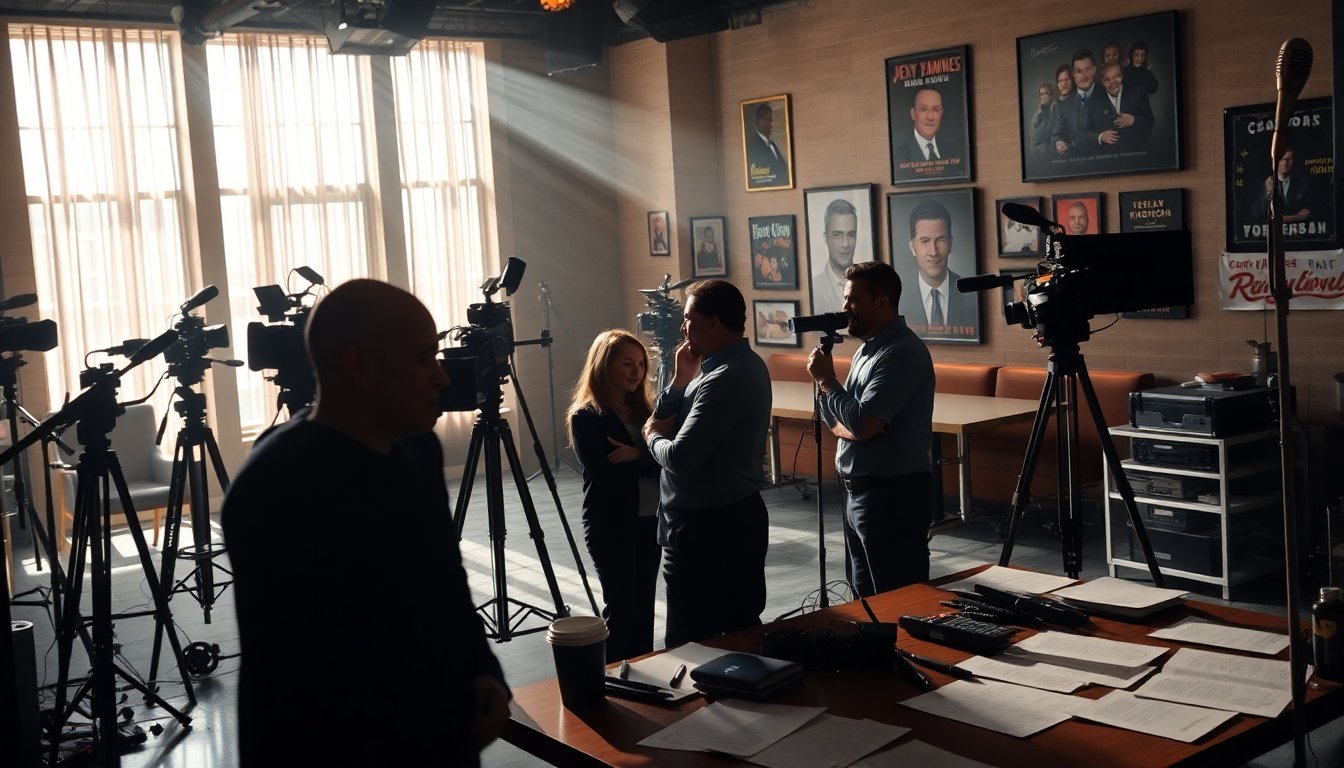Table of Contents
Suspension of Jimmy Kimmel Live! Sparks Controversy
The recent decision by ABC to suspend Jimmy Kimmel Live! has raised significant concerns nationwide. Critics view this move as part of a larger effort by President Donald Trump and his allies to suppress media voices that oppose his administration. The timing of this suspension, which coincided with Kimmel’s contentious comments regarding the alleged killer of prominent Trump supporter Charlie Kirk, has sparked intense discussions about the boundaries of free speech within the entertainment sector.
Media Censorship and Its Implications
The recent suspension of media personalities who critique former President Trump highlights a troubling trend. CBS’s cancellation of The Late Show with Stephen Colbert, known for its sharp commentary on the administration, exemplifies this shift. Critics argue that such actions indicate a move toward censorship in the United States. This raises significant concerns regarding the future of the First Amendment and the role of free speech in American democracy.
Free Speech Advocates Respond
Conor Fitzpatrick, a senior attorney with the Foundation for Individual Rights and Expression, expressed concerns regarding recent events involving media personalities. He stated that the situation reflects a calculated effort by the administration to retaliate against media outlets that do not conform to its narrative. Fitzpatrick remarked, “These are dark times for free speech in the United States.” He underscored the administration’s approach to controlling public discourse as a serious threat to individual liberties.
Political Pressure and Media Dynamics
ABC has not disclosed specific reasons for the suspension of Jimmy Kimmel’s show. This decision follows public criticism from Brendan Carr, the chair of the Federal Communications Commission (FCC), who labeled Kimmel’s remarks as offensive. Carr suggested that ABC affiliates could face fines or potentially lose their broadcast licenses if they continued airing Kimmel’s program.
This situation raises significant concerns among advocates for free speech. Connecticut Senator Chris Murphy highlighted that Kimmel’s suspension implies that any media figure straying from the administration’s expectations may be silenced. Murphy referred to this phenomenon as “state speech control,” a concept many view as a threat to the core democratic principles of the nation.
Government Influence on Media
Critics argue that former President Trump has long expressed his discontent with Jimmy Kimmel, suggesting that Kimmel’s suspension may serve as a warning to other media figures. In response to Kimmel’s suspension, Trump characterized the situation as one of talent rather than free speech, stating, “Jimmy Kimmel is not a very talented person… He was fired for lack of talent.” However, this assertion does not adequately address the growing concerns regarding an organized effort to suppress dissenting voices within the media landscape.
Legal Battles and Their Repercussions
The legal disputes initiated by former President Trump against various media outlets underscore a concerning trend in contemporary journalism. Lawsuits seeking billions of dollars against publications such as the New York Times and the Wall Street Journal raise questions about the motives behind these actions. Many observers argue that these lawsuits are not solely about protecting one’s reputation; rather, they appear aimed at intimidating and stifling legitimate journalistic efforts. This situation illustrates a troubling pattern of weaponizing the legal system against critical reporting.
Historical Context of Censorship
The United States has long championed free speech and expression. However, recent political developments raise critical questions about the sustainability of these principles. Advocacy group PEN America highlights what they characterize as a “McCarthy-esque crackdown on free expression” following the murder of Kirk. This suggests a troubling trend toward increased government control over public discourse.
As these events unfold, the relationship between comedy, politics, and media freedom undergoes significant changes. ABC’s recent decisions and the surrounding controversies represent a crucial moment for late-night television and the broader landscape of free expression in America.


